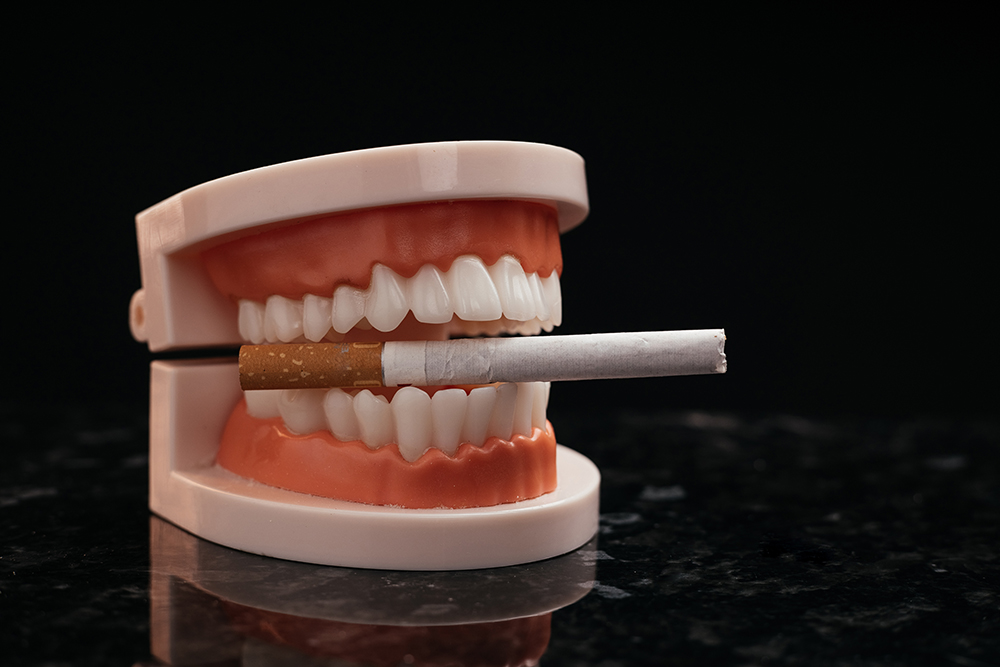Smoking is a habit that not only impacts your lungs but also wreaks havoc on your oral health. While the dangers of smoking are well-known, its effects on oral health are often underestimated. From stained teeth to severe gum disease, the consequences of smoking extend far beyond bad breath. In this article, we’ll delve into the ways smoking can harm your teeth, gums, and overall oral well-being.
One of the most visible effects of smoking on oral health is staining. The tar and nicotine present in cigarettes can turn your teeth yellow or even brown over time. This discoloration is not only unsightly but also challenging to remove with regular brushing alone. Professional teeth whitening treatments may offer some improvement, but quitting smoking is the most effective way to prevent further staining and restore your smile’s natural brightness.
Smoking significantly increases the risk of developing gum disease, a serious oral health condition that affects the tissues supporting your teeth. Nicotine restricts blood flow to the gums, reducing their ability to fight off infection and heal properly. As a result, smokers are more prone to gum inflammation (gingivitis) and its more advanced form, periodontitis. Left untreated, gum disease can lead to tooth loss and other complications, making it essential for smokers to prioritize oral hygiene and regular dental check-ups.
Smoking not only impairs the body’s ability to fight infection but also slows down the healing process. After dental procedures such as tooth extraction or oral surgery, smokers may experience prolonged recovery times and increased risk of complications. This delayed healing can result in additional pain and discomfort, prolonging the recovery process and potentially requiring further intervention from your dentist.
Perhaps the most serious consequence of smoking on oral health is the increased risk of oral cancer. Tobacco smoke contains numerous carcinogens (cancer-causing agents) that can damage the cells in your mouth, leading to the development of cancerous growths. Oral cancer can affect the lips, tongue, cheeks, throat, and other parts of the mouth, with potentially devastating consequences if not detected and treated early. Regular dental examinations are crucial for detecting any signs of oral cancer in its early stages, especially for individuals who smoke or use other tobacco products.
While quitting smoking is the most effective way to safeguard your oral health, it can be a challenging journey. However, the benefits of quitting extend far beyond your mouth, improving your overall health and quality of life. If you’re struggling to quit smoking, consider seeking support from your healthcare provider or joining smoking cessation programs for additional assistance.
Conclusion: Smoking poses significant risks to your oral health, including staining, gum disease, delayed healing, and an increased risk of oral cancer. By understanding these dangers and taking proactive steps to quit smoking or avoid tobacco use altogether, you can protect your teeth, gums, and overall oral well-being. Remember, your dentist is here to support you on your journey to a healthier, smoke-free smile.

Let's Talk

Address
8867 West Flamingo Rd STE 100
Las Vegas, NV 89147
Greaterlasvegasdental@gmail.com
